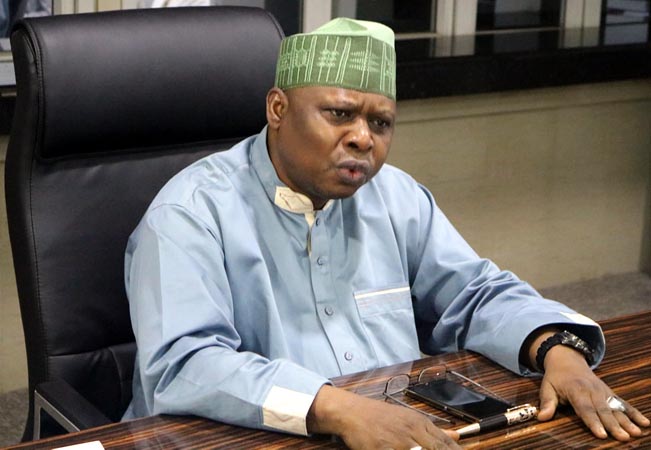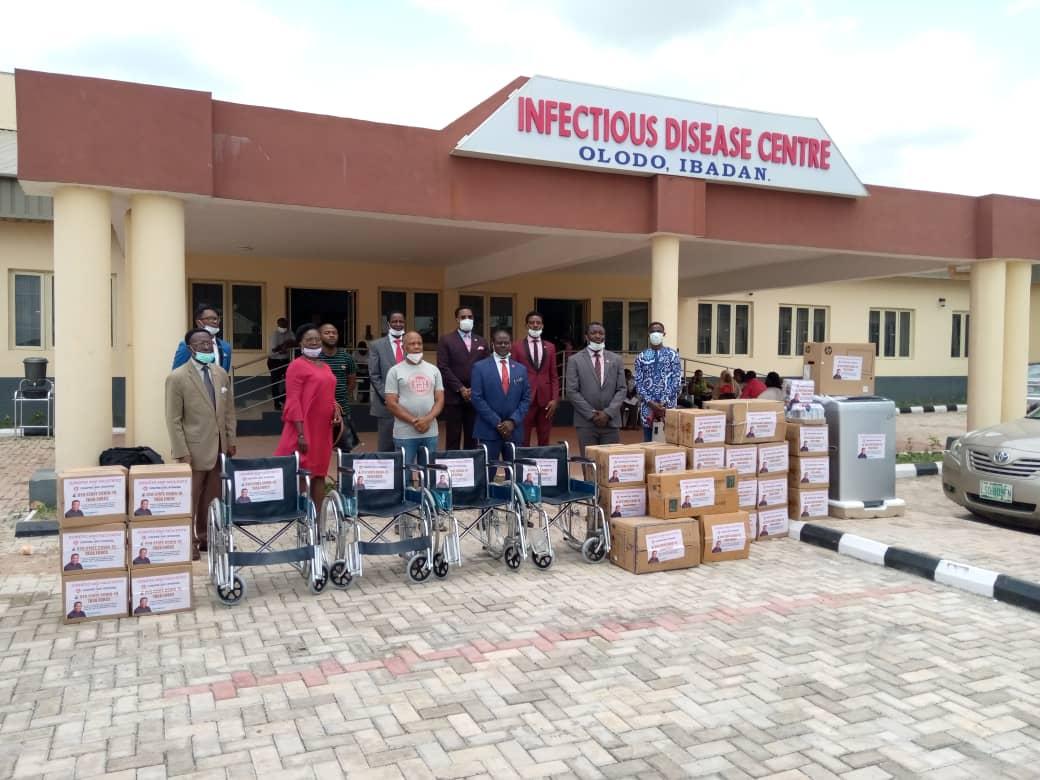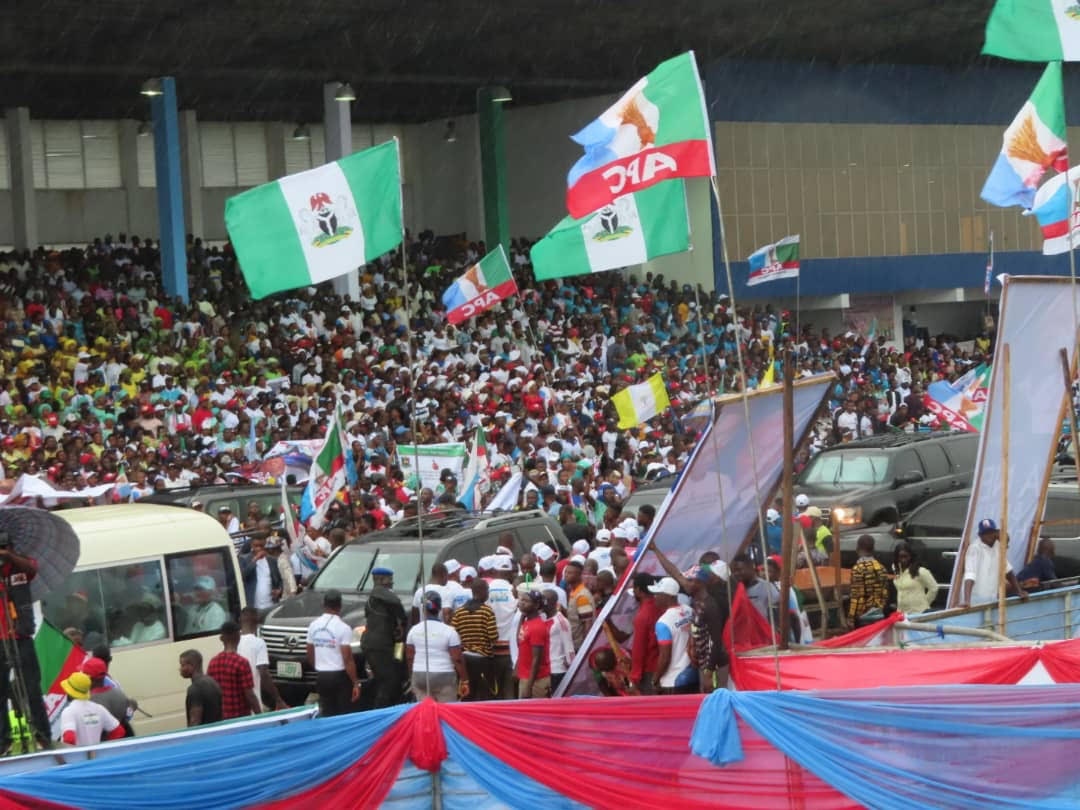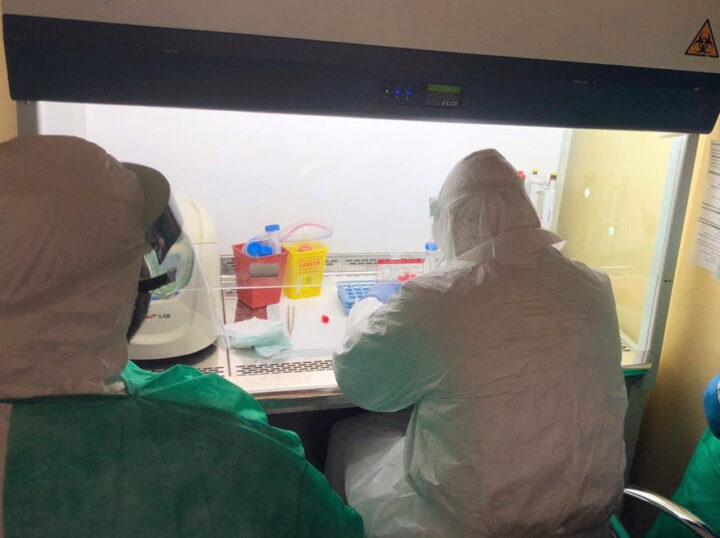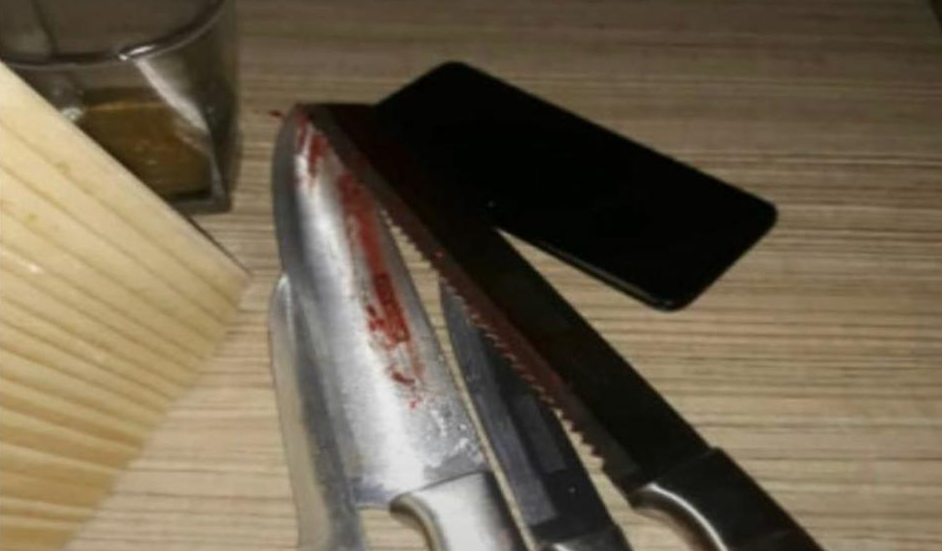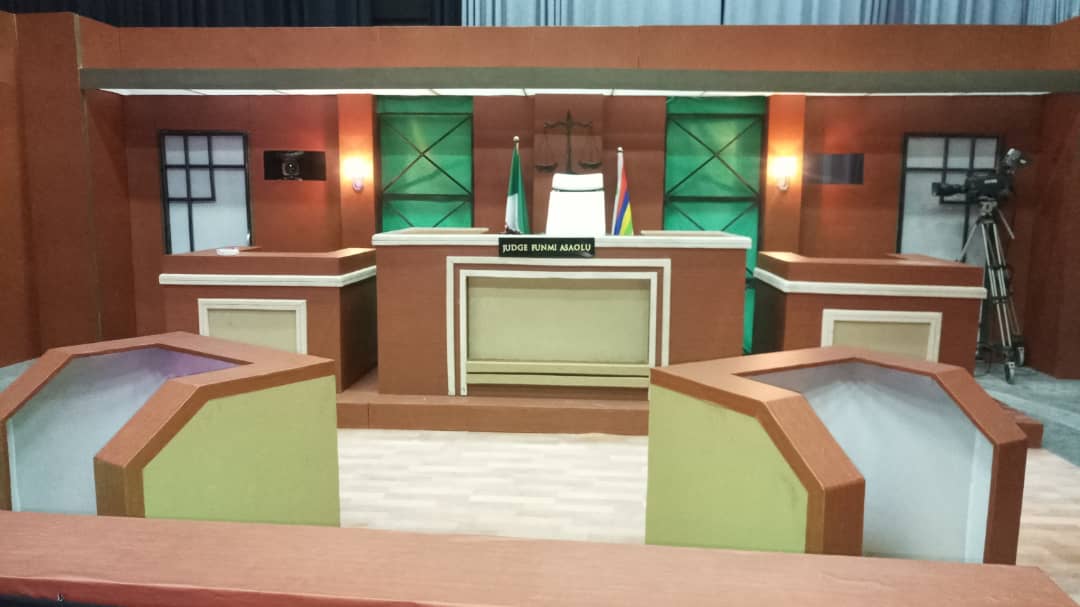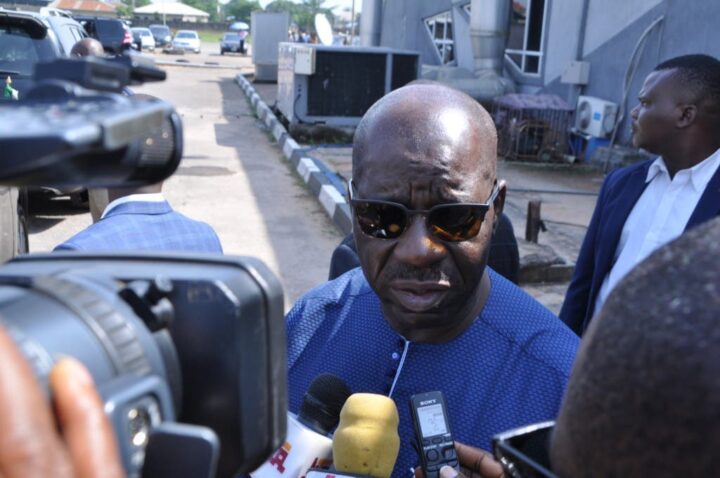Umar Tahir, an aide to former President Goodluck Jonathan, has told the federal high court in Abuja that Taminu Turaki, former minister of special duties and inter-governmental affairs, released N200 million out of the N359 million budgeted for a security sensitisation programme in 2014.
The Economic and Financial Crimes Commission (EFCC) had arraigned Turaki on May 4, 2020 over allegations of fraud.
He was arraigned before Inyang Ekwo, judge of the federal high court, Abuja, on a 16-count charge.
Turaki was the minister for special duties and inter-governmental affairs from 2013 to 2015 under Goodluck Jonathan.
Advertisement
He also served as the supervising minister of labour from 2014 to 2015.
Other accused persons arraigned alongside the former minister on May 4 are Sampson Okpetu, who served as his special assistant; Samtee Essentials Limited and Pasco Investment Limited — companies linked to Okpetu.
Turaki and Okpetu had pleaded not guilty to the charges.
Advertisement
Tahir, a former senior special assistant (SSA) on Islamic affairs, testified before Ekwo while appearing as the first prosecution witness.
Giving his testimony on Tuesday, Tahir said due to the shortage of funds released, the programme that was scheduled to hold in each of the 19 northern states and the six geo-political zones of the country could only be executed in the north-west zone, south-south zone, Abuja, Kaduna and Kano states.
He said he was invited by the former president on June 23, 2014, to discuss the security challenges posed by Boko Haram, fake speeches, among others.
The witness, who was led in evidence by Mohammed Abubakar, EFCC’s counsel, said part of the advice he offered Jonathan was to let his office organise “sensitisation town hall meetings across the 19 states and the six geo-political zones which the vice-president and top members of the government would attend.”
Advertisement
He said a memo was raised on June 30, 2014, in which he highlighted plans for the programme and indicated the need for the release of funds to organise it.
“But as a senior special assistant to the president, I did not have ministerial accounts. So, I was asked to liaise with the minister of special duties so that the money would be sent to him and he would then send it to me,” he said.
“The president in his minute on my memo gave his approval through the vice-president and my office. Therefore, on July 7, 2014, the approval was conveyed to my office and that of the vice-president.”
According to Tahir, he held meetings with Turaki after which he sent a budget of N359 million for the programme to the minister on September 2, 2014.
Advertisement
“In January 2015, the president granted the approval that the minister of finance should release N359m for the programme,” he said.
The witness, however, alleged that out of the figure approved, only N200m was released, out of which N150m was paid to him in three tranches of N50m each in January 2015, via an account he submitted to the minister.
Advertisement
He said he collected the balance of N50m in cash from the ex-minister’s aide, adding that it was when he was invited by the EFCC to shed light on the transactions that he was told that the total sum of N359 million was released to the minister.
“I gave EFCC copies of the cheques I issued for the disbursement of the money released to me. I said it was only N200 million that was released to me. They said the complete N359 million was released to the minister but he only gave me N200 million,” he added.
Advertisement
The judge then adjourned until September 21 for the cross-examination of the witness.
Meanehile, earlier in the proceedings, Ekwo ordered the EFCC to produce its investigation reports on the case and the statements of four of its proposed witnesses and have them served on the second defendant.
Advertisement
The judge gave the order following an application by A.K. Ajibade, the second defendant’s lawyer, and the counsel to EFCC did not oppose the application.
Add a comment
